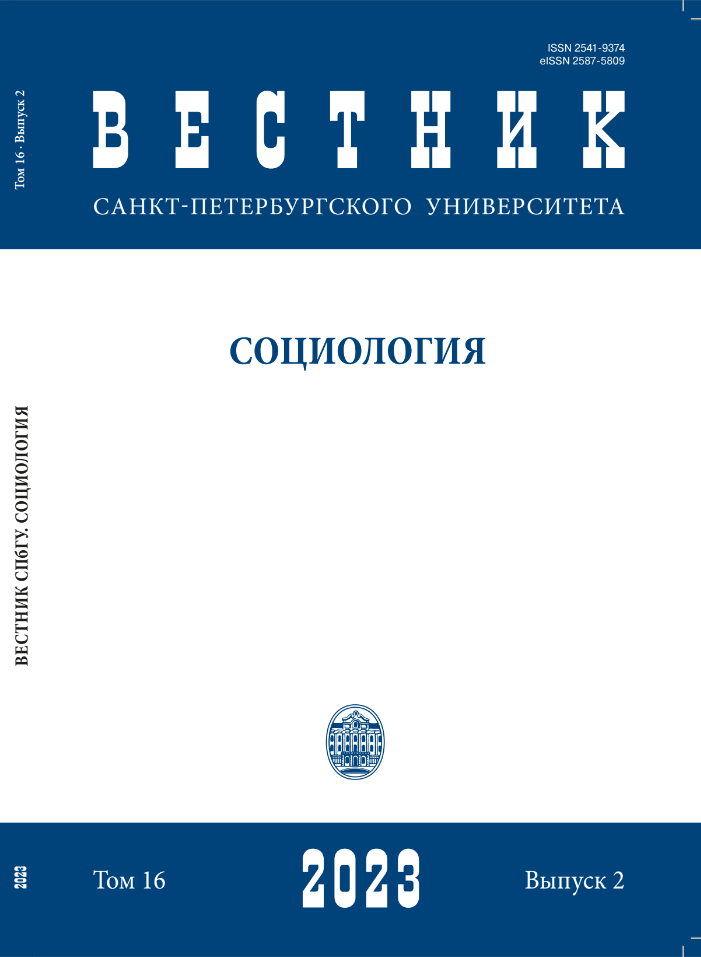Digital body image of users of devices for self-tracking
DOI:
https://doi.org/10.21638/spbu12.2023.205Abstract
The article presents the results of an empirical study implemented in a combined strategy in 2020–2021 and aimed at studying digital practices of healthcare of megalopolis residents. One of the focuses of interest was digital self-tracking, namely, the ways users interact with data supplied by personal devices, and the construction of a body image as a result of this process. The analysis of the data obtained allowed us to formulate several conclusions. Thus, for a significant part of active users of digital devices, the generated visual content, expressed in quantitative form, is of significant interest. There is an effect of access to the “real” body as well as the risks of a gap between personal feelings and digital data. The following arguments are put forward in favor of digital information: 1) the gadget can record indicators that are not available at the level of bodily sensations; 2) it generates content in ways that go beyond the capabilities of an individual. When there are significant discrepancies between digital data
and subjective experience, as a rule, it is not about their opposition, but about the work of coordinating and “smoothing” information received from various sources. Data visualization forms an idea of the owners of digital devices about their physical condition and progress in achieving their goals. In some cases, the digital body image becomes a reason for communication on social networks and a way of self-presentation. For those who actively practice digital self-tracking, the body image is considered to be incomplete without information expressed in numerical form. Moreover, for feeling corporeality, the experience of vision turns out to be fundamentally significant today.
Keywords:
digital self-tracking, digital data, digital body image, visualization, interview, healthcare
Downloads
References
Downloads
Published
How to Cite
Issue
Section
License
Articles of "Vestnik of Saint Petersburg University. Sociology" are open access distributed under the terms of the License Agreement with Saint Petersburg State University, which permits to the authors unrestricted distribution and self-archiving free of charge.




